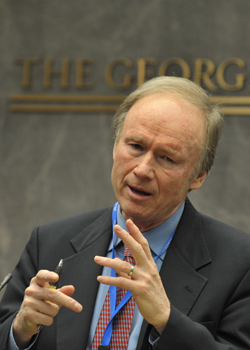Professor Christopher Buccafusco and colleagues John Bronsteen (Loyola Chicago) and Jonathan S. Masur (U of Chicago) have authored a new article titled “Well-Being and Public Policy.” The article is forthcoming as a chapter in the Oxford Handbook of Law & Economics, edited by Francesco Parisi. Read an abstract below:
Governments rely on certain basic economic metrics and tools to analyze prospective laws and policies and to monitor how well their countries are doing. For decades, critics of such economic measures have argued that they ignore important aspects of value that are not fully reflected by output or by willingness to pay (WTP). In recent years, one of the most important developments in social science has been the emergence of psychological research measuring subjective well-being (SWB) or “happiness.” Researchers have made great strides in replicating and validating their findings about happiness, and world leaders have called for this research to be used to supply SWB-based metrics and tools as alternatives to the existing economic ones. In response to these calls, early efforts have been made to use SWB research to create new social indicators. In this chapter, we discuss some of the efforts that have been made in this regard. We first briefly explain the way that SWB is measured and the way those measurements have been validated. We then explain our own contribution — well-being analysis (WBA) — which uses happiness data to analyze prospective policies more accurately than does cost-benefit analysis. Next, we cover the ways in which SWB data have been used to generate prices that can be used by traditional economic analysis. We then discuss attempts to revise cost-benefit analysis to deal with the limitations stemming from the fact that it uses wealth to assess the effects of policy on quality of life. Finally, we lay out the strides that have been made toward creating an SWB-based alternative to GDP.
Download the paper on SSRN here.



Leave a Reply